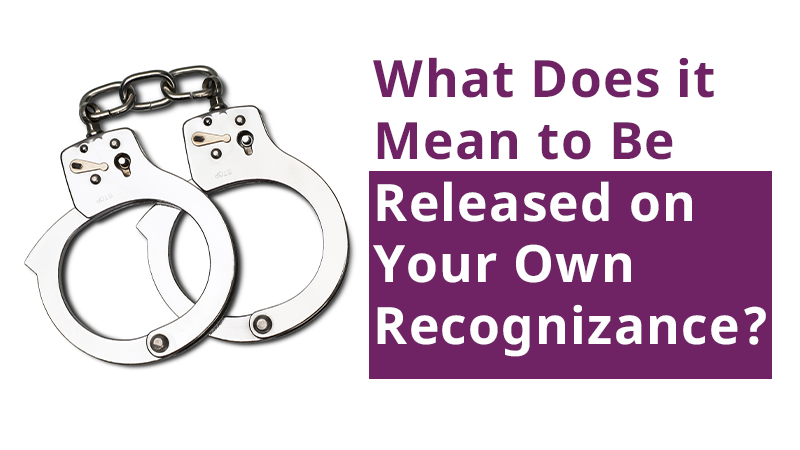
What Does it Mean to Be Released on Your Own Recognizance?
Written on August 8, 2016. Posted In Uncategorized
Being arrested, even for a minor crime, can be a difficult and confusing experience. Sometimes a judge will allow an individual to be released between the time of the arrest and when the person is scheduled to appear in court. This is called being “released on your own recognizance.” This blog will go over what it means to be released on your own recognizance, when this may be granted, the stipulations involved and who to contact if this type of release is denied.
What Does it Mean to Be Released on Your Own Recognizance?
Being released on your own recognizance (ROR) means that, as a defendant, you have signed a written promise agreeing to show up for any future court appearances. It also means you have agreed not to engage in any illegal activity while out on ROR. If a judge grants ROR, this means you will not be sent to jail while things get sorted out, which means you won’t need to pay bail.
When Can You Be Released on Your Own Recognizance?
If you’re arrested on a misdemeanor or a non-violent charge, it may be possible to receive this type of release. Traffic violations and shoplifting are two types of crimes in which ROR may be granted. Factors a judge will take into consideration can include any previous arrests you may have had, if you’re considered a flight risk, family ties to the community and the overall seriousness of the crime. It should be noted that when minors are charged with a crime, they are not entitled to bail in most jurisdictions.
Are There Any Stipulations?
Several stipulations are normally included when this type of release is granted. There may be stipulations regarding travel and possible supervision by the court. You may also be required to abide by a curfew or you might have to attend rehab classes. One of the most important requirements is that you appear at all future court dates. If you fail to show up for court after being granted ROR, you will be subject to immediate arrest.
What Are My Options if I’m Denied?
If ROR is denied you will then need to post bail, which means you’ll likely need to obtain a bail bond to be released. Free at Last Bail Bonds is a 24-hour national bail bonding company. We accept a wide variety of payment methods and can conduct the entire process over the telephone.
Our company is family owned and has dozens of years of legal expertise. If you or a loved one needs a bail bond or if you’re looking for more information regarding bail bonds, contact Free At Last Bail Bonds as soon as possible. We’re always here to help!
We understand the importance and urgency of reuniting families. Contact us!

